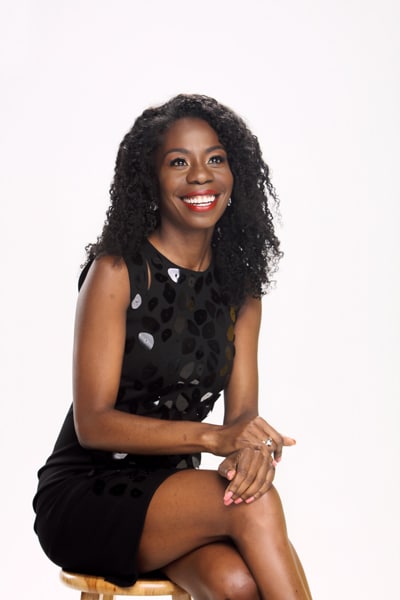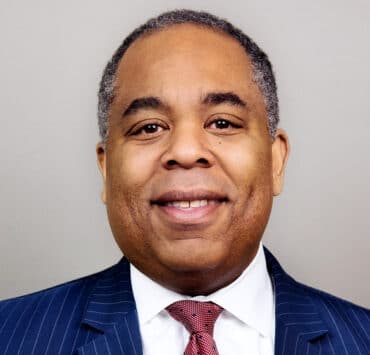|
Getting your Trinity Audio player ready...
|
Stacy Raphael Stewart’s college admission story is an unusual one. A native of Trinidad and Tobago, she migrated to the United States during her first years of high school—which is a bit unusual in itself, since she’d tested out of middle school completely through firm advocacy by her parents and was a freshman at age twelve.
Stewart returned to Trinidad during high school but wanted to get back to the US for her college education, so she attended a college fair to look at options. The director of international affairs from South Carolina State University took one look at her transcripts, awards, and SAT scores and made her a proposal: if she agreed to sit at the SCSU booth for the day and talk to other prospective students, she would earn herself a full ride to the historically Black college.
Also, she had to bring the recruiter a Snickers bar. Stewart took the deal.
Getting into college was the easy part, though. Stewart would have to learn to navigate a country that made her feel like an outsider, even while attending historically Black colleges like South Carolina State and, later, Howard University.
“There were so many cultural leanings and understandings I just wasn’t privy to,” Stewart explains. “No matter how much I could excel academically, I never really became culturally clued in from the change from Trinidad to the US. I could do the work, but how could I relate to the pop culture, sports, movies, and music conversations that are such an ingrained part of the culture here?”

Stewart is now associate general counsel and intellectual property attorney for the beauty company Coty, managing IP matters for well-known brands like CoverGirl, Sally Hansen, Adidas, Kylie Jenner Beauty, and Kim Kardashian Beauty, among others. But despite excelling in school and her early career, for many years she was left feeling like a fish out of water.
During one of her first stints as an attorney, Stewart met lifelong friends and got her first real law experience. But she also had one of the worst encounters of her career with a senior associate and future partner.
“I was made to feel like I had no right to be in my position,” Stewart remembers. “Even though I was a person who had done so much to get to this current moment, I was belittled and spoken down to like I didn’t deserve this opportunity.”
The experience caused Stewart to leave what she believed at the time was her dream job. She spent a little over a year on her own before being hired at the firm Cantor Colburn. The difference between this job and her previous position was night and day, and she says that Pete Hagerty, managing partner at the Atlanta office, made an immediate impact.
“This amazing man would ask me questions about who I was and where I came from,” Stewart says. “We had a discussion about my ambition and what coming to the US meant to me. He supported me and continues to support me. Up to that point, I thought my law career was over.”
The year on her own and new job caused Stewart to recalibrate the way she looked at her life experiences. She had endeavored to become a lawyer no one could turn down. She read everything related to IP that she could get her hands on, including entire court cases—complaints, motions, and all.
“When I came to Cantor Colburn, they asked how a newly minted lawyer already knew so much,” Stewart says, laughing. “It was because in that gap period, I decided to use my time to stretch myself as much as I possibly could.”
“If you feel that your voice is heard and that you have a safe space to offer up what may seem like crazy ideas—and I think my crazy ideas are my superpower—then you create this richness that leads to the best possible outcomes.”
Despite her extensive knowledge, though, Stewart has struggled with self-doubt at times, especially when she has to speak publicly and is hyperaware of her accent. “I have to say to myself, ‘You are capable, you are capable, you are capable.’ And this is something that happens a lot for people of color,” she says.
Stewart’s doubts and fears have helped shape her philosophy on life: she likens moving forward into an uncertain future to stepping off a train car. “In Europe, they say ‘mind the gap’ when you step off [the train]. There are those spaces that you just have to leap over. It can be terrifying, but just prepare yourself the best you possibly can and go for it.”
At Coty, Stewart has endeavored to help her company take a more active role in providing opportunities for people like her. “We would love to see more female leadership on our board, women and men of color in leadership positions, and my voice has been supported here,” Stewart says. She speaks highly of Coty general counsel Kristin Blazewicz and the bond they have formed.
She now hopes that more law leaders will recognize the value that diversity brings. “I can’t stress enough what it means to have a leader who’s willing to talk about the elephant in the room. Most often, that is race and cultural differences,” she says. “If you feel that your voice is heard and that you have a safe space to offer up what may seem like crazy ideas—and I think my crazy ideas are my superpower—then you create this richness that leads to the best possible outcomes.”


